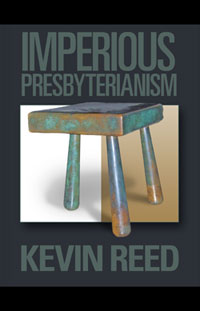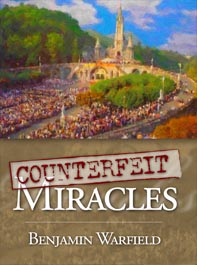
Last night a friend messaged me letting me know that supporters of Doug Wilson are claiming Wilson is no longer affiliated with the Federal Vision and to continue to label him as a Federal Visionist is unwarranted and generally not nice. I admit that was news to me and frankly nothing could make me happier to learn that Wilson has rejected the central tenets of this aberrant, deadly and anti-Christian theology and has now embraced the unvarnished truth of the Gospel. His scales have been removed, hallelujah! However, being generally skeptical of sudden conversions, although knowing from Scripture that they can and do occur, I asked for some proof or a link recounting Wilson’s road to Damascus moment. So my friend sent me a link to a piece on Wilson’s blog titled; Federal Vision No Mas. Encouraged by the Roberto Durán surrender reference, I read the piece.
Reading it I had the sense that I had read it before. Turns out I did, albeit secondhand on Lane Keister’s Greenbaggins blog. Lane wrote that Wilson “is not retracting his theology. He is retracting what he would call or label his theology.” The sum total of Wilson’s conversion is that he no longer identifies with the Federal Vision. Given that we live in an age where a man can “identify” as a woman or even a reptile, Wilson seems to think he can slither away from the Federal Vision while still affirming its theology. Sorry, Doug, it doesn’t work like that.
Explaining why he no longer wants to identify with the Federal Vision Wilson writes:
Everybody knew (or thought they knew) what that phrase [Federal Vision] represented. Since I certainly owned the phrase, albeit with modifiers, and lots of energetic typing, what happened was that I was thought to be owning what people knew as this. But the more I typed that, the more it made people’s heads hurt. So one of the few things I have been successful at doing is persuading a number of people that I am a sly fellow, and one who bears close watching. Heretics are slippery with words, and since I have spent a lot of time trying to grease this particular piglet, I must be a heretic.
While I can certainly understand why a heretic wouldn’t want to be known as one, and I suspect that particular epithet has started to hurt Wilson’s bottom line hence his feigned mea culpa, the irony is that he continues to use an almost endless stream of slippery words to explain why and how he is no longer a Federal Visionist; none of which are very convincing. Pay close attention to just some of Wilson’s slippery words:
This is because—I am now convinced—it is not the case that there is this thing called federal vision, with how much of it you actually get wired up to a dimmer switch. I believe it is a false analogy to say that I am a 7 on this switch, and Jim Jordan, say, is a 9.
Coming to this recognition does not mean that I am now disclaiming all commonality with my friends in the federal vision, even over against what many other believers in other traditions believe. Lutherans and Baptists both believe in the deity of Christ and in justification by faith alone—but Lutherans are still Lutherans all the way down. The same goes for Baptists. Baptists are Baptists all the way down. A federal vision advocate is FV all the way down. I am something else all the way down, and I believe that the terminology is getting in the way of making important distinctions.
So the views I hold to are a different kind of thing from what is represented in the common understanding of the federal vision, and the differences involved are connected to everything. They are a different kind of thing, not a lesser amount of the same thing. Thus when I speak of the objectivity of the covenant—which I will still continue to do—this is not a lite version of what someone else might mean by it.
Wilson says he differs from Federal Visionists like James Jordan “all the way down,” but at the same time continues to affirm “commonality” with his FV friends to include his so-called “objective” view of the covenant where the magic waters of baptism in conjunction with the mystical mumbling of some quasi-priestling-pretend-Protestant renders a person “elect” if only for a time. But that commonality doesn’t stop there. Wilson assures his readers; “I would still want [sic] affirm everything I signed off on in the Federal Vision statement ….” So, Wilson continues to affirm the Joint Federal Vision Profession but no longer wants to be considered a Federal Visionist? Huh? Not sure how that’s supposed to work?
While there are a number of problematic things with the FV statement, including the affirmation of covenantal nomism, the one thing that has always stood out for me was their description of saving faith:
We deny that the faith which is the sole instrument of justification can be understood as anything other than the only kind of faith which God gives, which is to say, a living, active, and personally loyal faith. Justifying faith encompasses the elements of assent, knowledge, and living trust in accordance with the age and maturity of the believer.” (JFVP, p. 6, emphasis mine)
Not to unpack all the slippery words above or revisit how they have been used by defenders of the FV, most proficiently by Wilson himself, PCA pastor Wes White sums up their view of saving faith this way:
Now, notice that last phrase, “personally loyal faith.” Here’s how dictionary.com defines loyalty:
1. The state or quality of being loyal; faithfulness to commitments or obligations.
2. Faithful adherence to a sovereign, government, leader, cause, etc.They tried to slip one past us by using the word “loyal” instead of “faithful,” but it means basically the same thing. Faithfulness to commitments and faithful adherence, according to the Federal Visionists, is included in the “sole instrument of justification.” This is justification by faithfulness, justification by obedience, and justification by works. This is a rejection of the sola fide of the Reformation.
Rather than affirming the so-called “objectivity of the covenant” and the Joint Federal Vision Profession which was authored by Wilson, he should reject and renounce these things. That is what he needs to retract and not some nonsense about not taking his “responsible” and “fair-minded” critics like “Rick Phillips, Cal Beisner, and Richard Gaffin” more seriously and apologizing for lumping them in with the “irresponsible ones” (I’m sure he has people like yours truly in mind). Or, complaining that Peter Leithart’s “end of Protestantism” project is something he can’t go along with. None of that matters and none of that is enough to separate him from the house he built.
God said through Jeremiah: “Can the Ethiopian change his skin or the leopard his spots? Then also you can do good who are accustomed to do evil.” Wilson may not be happy with the long-term (financial?) consequences from his long association and defense of the Federal Vision, but he has no more ability to wipe this stain from his character than the “transgender dragon man” can repair his forked tongue with super glue or remove his tattooed scales with Palmolive and a dish rag.







































Recent Comments